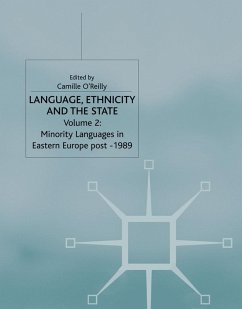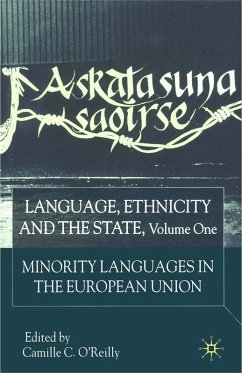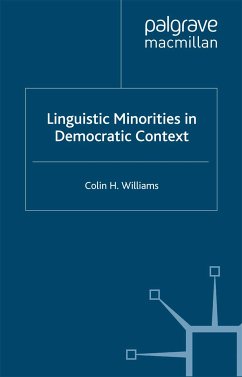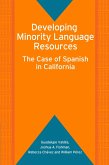Minority languages in Europe, as part of a common cultural heritage, need protection. The contributions to this book reflect urgent, stimulating and productive debates among researchers in sociolinguistics, linguistic anthropology, politics and sociology, and among language activists and policy makers. At the heart of the debate are the effectiveness of the existing political and legal frameworks aimed at protecting linguistic and cultural diversity, and prospects for the survival of minority languages in the process of European integration.
Dieser Download kann aus rechtlichen Gründen nur mit Rechnungsadresse in A, B, BG, CY, CZ, D, DK, EW, E, FIN, F, GR, HR, H, IRL, I, LT, L, LR, M, NL, PL, P, R, S, SLO, SK ausgeliefert werden.









